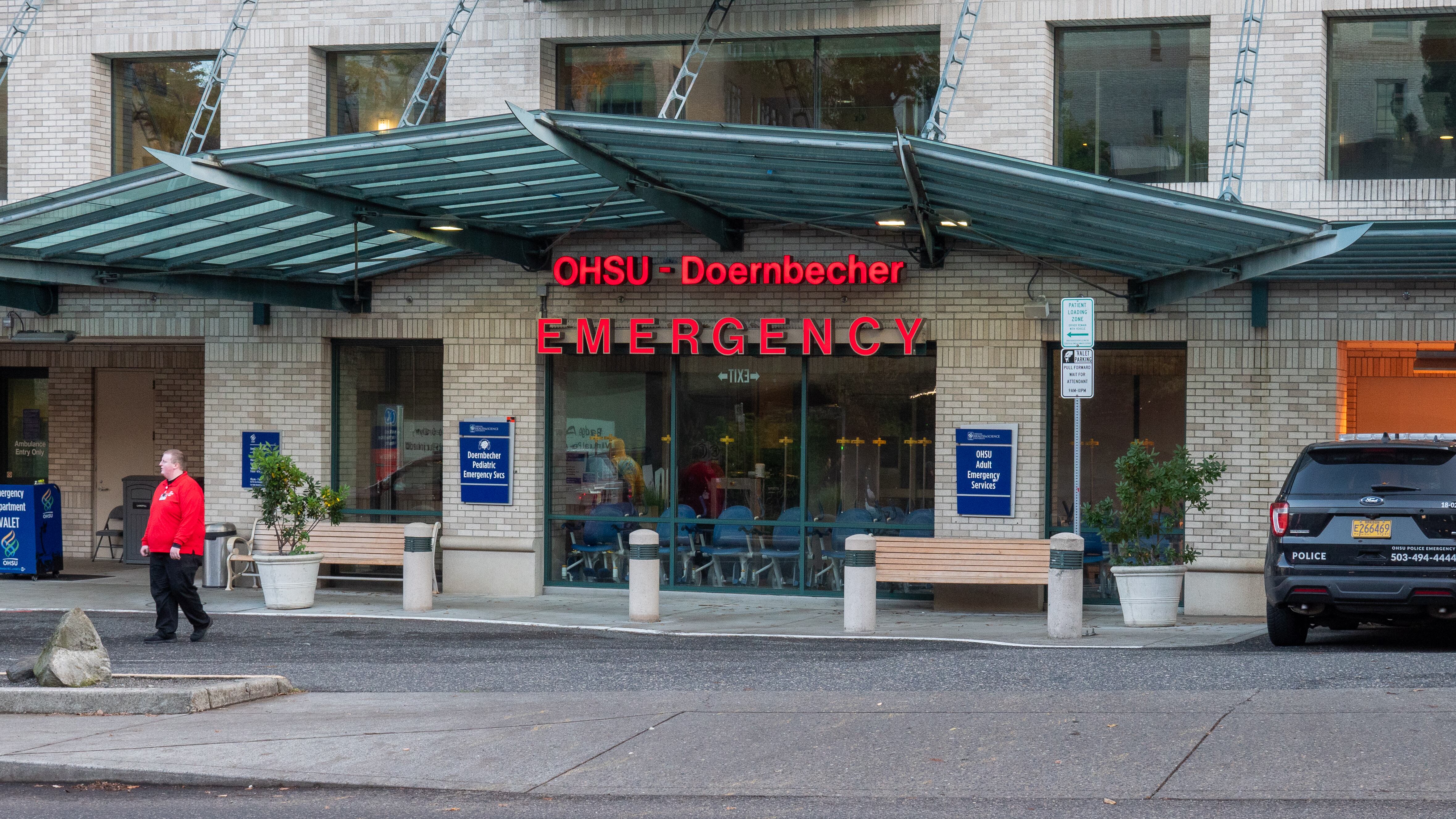Dr. George Keepers has chaired Oregon Health & Science University’s Department of Psychiatry for more than 20 years and worked at a high level in Oregon’s mental health arena for twice that long.
He was the first medical director of what is now Cascadia Mental Health, served as the consulting psychiatrist at the Warm Springs Reservation, and was chief of inpatient psychiatry at the Portland VA Medical Center.
Keepers, 73, speaks softly and with a grandfatherly twinkle in his eye. But in an interview about his views on Oregon’s system of delivering mental health services last week, he dropped a bomb on Oregon in the form of one simple comparison.

Keepers noted that Oregon spends more per capita on mental health care than most states but our results are among the nation’s worst. Specifically, Keepers noted, Oregon spends $234.87 per person, compared to $113.27 in Massachusetts. Yet, Keepers says, our results—as measured by access to care and positive outcomes—rank 46th in the nation, while Massachusetts’ rank in the top five.
And, Keepers added, the explanation is no mystery—but nor does it appear Oregon is moving toward fixing the problem.
In an hourlong interview, Keepers also shared his thoughts on why so many people with untreated mental illness are wandering the streets, whether Measure 110 is good policy, and whether it’s time to reinstitutionalize people suffering from serious mental illness. His remarks have been edited for brevity and clarity.
WW: Are there some generally accepted principles for how you construct a behavioral health care system?
George Keepers: Yeah, there are. Compared to a place like Massachusetts, which has a very good mental health system, we in Oregon spend about twice the amount of money per capita. Yet we are almost last in the nation in mental health care results, while Massachusetts ranks in the top five.
Why do you think there’s such a discrepancy?
Well, in Oregon, we have multiple governmental entities trying to create various systems without a lot of coordination. Here, the mental health system has always been described as a state-county partnership. The county is the mental health authority in Oregon. What happens is, counties decide what’s going to happen within their jurisdiction. That can be wildly different from one place to another.
Why does Massachusetts get better results?
Massachusetts has control over the delivery of care within the state. Not only do they directly offer programs, but they have designed criteria for the programs from other agencies that are offered in the state. And they have control over insurance reimbursement so they can mandate that insurance companies cover certain kinds of care. As a result of the powers that they have, they are able to create coordinated systems of care that are very efficient and very effective.
That’s very different from the Oregon Health Authority, which does not have that kind of ability to control the creation of systems or the reimbursement for systems. Instead, we have a distributed system of governance through counties, coordinated care organizations, and so on.
Oregon is a pretty enlightened state and our leaders say they really care about mental health. Are there other reasons our results are so bad?
I’m not sure I have the answer. Oregon is a place where we also don’t fluoridate the water.
When you talk to colleagues from other states, what do you tell them about Oregon?
Oregon has not taken advantage of expertise. For instance, schizophrenia is a condition we know how to treat. We can’t cure it, but we do know how to treat it. The same is true of substance abuse. Treatment’s very effective. If you look at physicians who become impaired because of substance abuse, for instance, they have over 90% effective treatment and return to practice. With the right treatment, people get better. I just think Oregon has not taken advantage of expertise about the treatment of psychiatric conditions and substance abuse.
Multnomah County got more than $200 million as part of Oregon’s Community Mental Health Program. What do you think of the investments it’s made over the past three years?
I don’t have the ability to make those judgments. I can say that the results from them have not been adequate. But I wouldn’t single out the county. The explanation for why things have gone badly is more complicated.
The first thing I’d say is, the homeless issues in Portland didn’t just happen recently. When I first started in the ‘80s, we had a really significant homeless mentally ill population in what is now the Pearl District. As the Pearl developed, the housing that was available to those individuals went away. And there was a big surge in homelessness and in the mentally ill population. Meanwhile, there was a massive reduction in the number of beds at the Oregon State Hospital.
People say we’re not just short beds but also trained mental health providers.
We are certainly short of psychiatrists. And we are way short of child psychiatrists. We are very short on master’s-level social workers. And we don’t have a strategy for increasing that workforce. In Washington, they created an integrated training center for mental health professionals of all sorts. We have advocated for that in Oregon. Actually, Unity Center for Behavioral Health is an ideal place for that kind of a training facility. We could, with much less investment than Washington made, build a similar kind of program.
OHSU plays a key role at Unity Center. But Unity had a rocky start. How’s it going now?
Unity provides outstanding care for patients. But there are a couple things we didn’t expect. One is the profound effect that the increased use of opiates and methamphetamine has had on the patient population. Second, we didn’t expect that we would be caring for so many committed patients at Unity. The state hospital really is unable to admit most patients who are civilly committed. They’re required instead to care for patients who are in the legal system, either who are hospitalized to restore their ability to aid and assist in their legal defense or who are hospitalized because they’ve been found guilty except for insanity.
How does Oregon’s process for civilly committing people who might be a danger to themselves or others compare to those in other states?
It’s much more difficult than in most states—too difficult, in my view.
But even if the civil commitment laws were more lenient, there’s no place to put people.
That’s correct. Committed patients being treated now are in Unity Center and at the psychiatric units in Providence, but also we have committed patients in general hospital beds, and we’ve seen committed patients being cared for in emergency rooms for significant periods of time. That’s not good for anybody.
What are your thoughts on Measure 110?
It is a conundrum. There’s no doubt that the war on drugs was a disaster. So the premise of the measure was correct. The idea that you would divert people to treatment is sound. However, you can’t divert people to treatment until there are treatment facilities. And those were not in place at the time 110 went into effect. Another thing: 35 states (Oregon isn’t one of them) have a type of commitment law that enables them to commit people who are addicted to substances and are using them in an uncontrolled way and have no autonomy or capacity to choose treatment.
But again, even if you could commit such people, there’s no place for them to go.
Correct. We need additional treatment facilities for substance dependence.
Methamphetamine psychosis was a big issue a few years ago, but it’s been overshadowed by fentanyl. Has it subsided?
Meth is still a big problem. In some ways, when you’re treating patients, methamphetamine is a bigger problem than fentanyl because those patients are much more likely to be very violent and agitated than patients on fentanyl.
You have painted a vivid picture of a disjointed nonsystem in Oregon. Is part of the answer reinstitutionalization?
Oh, no, I wouldn’t say that.
Why not?
We do need more beds and a higher level of care and treatment. But why not just put everybody in the hospital? Because that is not the right treatment. The majority of people who have serious mental illnesses can live successfully in the community and lead lives that are much more fulfilling than they would be than what they would have if they’re institutionalized. Putting them all in a hospital is inhumane.
